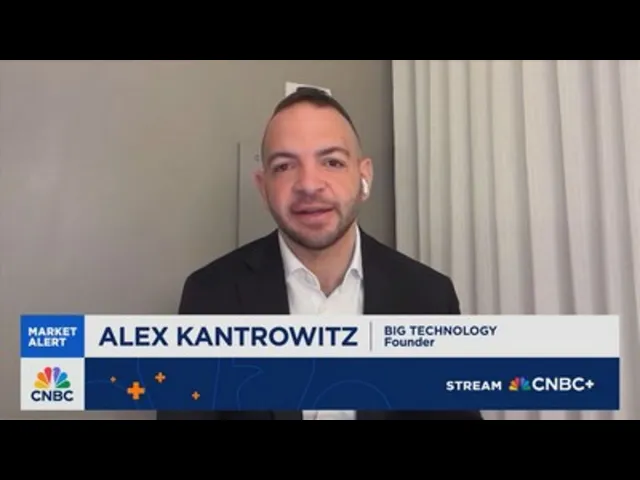Kantrowitz: Google will keep its foot on the gas pedal for AI and cloud

Google keeps foot on gas pedal for AI and cloud
In the ever-accelerating tech race, Google's commitment to AI investment remains a focal point for industry watchers. A recent interview with tech analyst Alex Kantrowitz revealed compelling insights about Google's strategy amid economic uncertainty and competitive pressures. As the pioneer that ignited the generative AI revolution, Google faces both opportunity and obligation to maintain its technological edge—even as questions arise about spending restraint across the tech sector.
Key insights from Kantrowitz's analysis:
- Google will likely maintain aggressive AI infrastructure spending despite market pressures, as pulling back would signal weakness in their core strategic battleground
- Cloud services continue to drive growth, with estimates suggesting Google Cloud revenues will rise to more than $12 billion (28% year-over-year growth)
- Google's advertising business, particularly its performance-related ads, serves as an economic indicator—any weakness here could signal broader economic concerns
The AI investment imperative
Perhaps the most significant takeaway from Kantrowitz's comments is Google's fundamental need to maintain AI investment momentum. "This is the company that brought the generative AI innovations to market that kicked off this entire moment," he noted, highlighting how Google initially fell behind despite pioneering the technology.
This positioning matters tremendously within the industry context. We're witnessing an arms race where technological leadership translates directly to market position and revenue opportunity. Google's continued investment signals confidence that AI capabilities will determine future market leaders, not just in search, but across their entire product ecosystem.
Beyond the transcript: The hidden costs of hesitation
What Kantrowitz doesn't mention is the historical lesson of technological hesitation. When Microsoft initially dismissed the internet revolution in the 1990s, it required a dramatic corporate pivot documented in Bill Gates' famous "Internet Tidal Wave" memo. Companies that pause technological investment during market uncertainty often find themselves years behind when conditions improve.
For Google, the risk is particularly acute given Microsoft's aggressive integration of OpenAI technology into their product suite. The Google Cloud Platform (GCP) has finally established itself as a credible alternative to AWS after years of playing catch-up. Any deceleration now could permanently relegate Google to third place in a market where scale and capabilities determine success.
The spending paradox facing tech giants
One aspect deserving deeper analysis
Recent Videos
How To Earn MONEY With Images (No Bullsh*t)
Smart earnings from your image collection In today's digital economy, passive income streams have become increasingly accessible to creators with various skill sets. A recent YouTube video cuts through the hype to explore legitimate ways photographers, designers, and even casual smartphone users can monetize their image collections. The strategies outlined don't rely on unrealistic promises or complicated schemes—instead, they focus on established marketplaces with proven revenue potential for image creators. Key Points Stock photography platforms like Shutterstock, Adobe Stock, and Getty Images remain viable income sources when you understand their specific requirements and optimize your submissions accordingly. Specialized marketplaces focusing...
Oct 3, 2025New SHAPE SHIFTING AI Robot Is Freaking People Out
Liquid robots will change everything In the quiet labs of Carnegie Mellon University, scientists have created something that feels plucked from science fiction—a magnetic slime robot that can transform between liquid and solid states, slipping through tight spaces before reassembling on the other side. This technology, showcased in a recent YouTube video, represents a significant leap beyond traditional robotics into a realm where machines mimic not just animal movements, but their fundamental physical properties. While the internet might be buzzing with dystopian concerns about "shape-shifting terminators," the reality offers far more promising applications that could revolutionize medicine, rescue operations, and...
Oct 3, 2025How To Do Homeless AI Tiktok Trend (Tiktok Homeless AI Tutorial)
AI homeless trend raises ethical concerns In an era where social media trends evolve faster than we can comprehend them, TikTok's "homeless AI" trend has sparked both creative engagement and serious ethical questions. The trend, which involves using AI to transform ordinary photos into images depicting homelessness, has rapidly gained traction across the platform, with creators eagerly jumping on board to showcase their digital transformations. While the technical process is relatively straightforward, the implications of digitally "becoming homeless" for entertainment deserve careful consideration. The video tutorial provides a step-by-step guide on creating these AI-generated images, explaining how users can transform...
